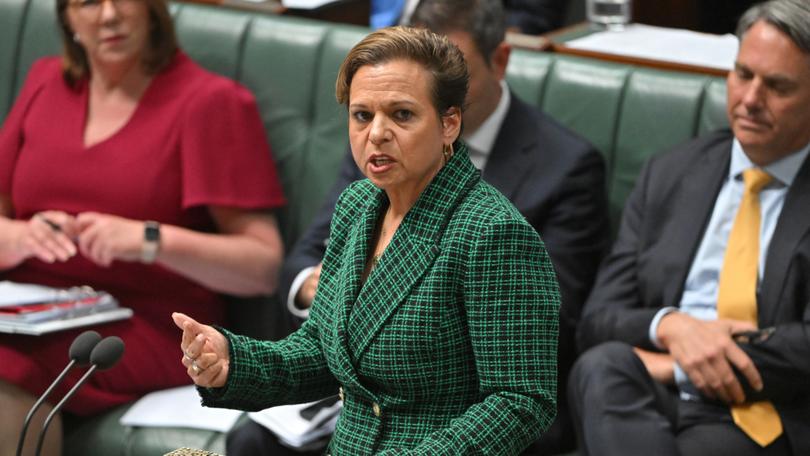Communications Minister Michelle Rowland unveils laws to crackdown on social media misinformation
Social media companies would face fines for allowing ‘harmful’ misinformation and disinformation under laws to be introduced to Parliament on Thursday.

Tech giants would face huge fines for allowing “seriously harmful’ misinformation and disinformation to circulate online under the Federal Government’s latest crackdown on digital platforms.
Communications Minister Michelle Rowland will introduce the laws to Federal Parliament on Thursday, almost a year after a major backlash led by free-speech advocates prompted Labor to delay and rewrite the proposal.
Among a raft of concessions, a proposed exemption for political content will be axed.
Sign up to The Nightly's newsletters.
Get the first look at the digital newspaper, curated daily stories and breaking headlines delivered to your inbox.
By continuing you agree to our Terms and Privacy Policy.The laws will create new powers for the Australian Communications and Media Authority (ACMA) to hold platforms including X, Google and Facebook accountable for “seriously harmful” content spreading on the internet.
It is part of a wider pushback against the powerful social media giants, which is now set to include legislating a minimum age limit to use the sites.
Under the new laws, platforms would be forced to publish details about how they handle misinformation and disinformation.
ACMA would be able to set an enforceable industry code or make standards if the platforms failed to address the issue themselves.
Platforms could be slapped with civil penalties of up to 5 per cent of their annual global turnover for breaches of misinformation standards, which would translate to tens of millions of dollars for the big tech giants.
“Misinformation and disinformation pose a serious threat to the safety and wellbeing of Australians, as well as to our democracy, society and economy,” Ms Rowland said.
“Doing nothing and allowing this problem to fester is not an option.”
Labor’s draft proposal was shelved in November after it was swamped with thousands of submissions from free-speech advocates who claimed the laws amounted to censorship.
The Coalition, legal experts and faith groups were also opposed.
The new laws will tighten the definition of disinformation and misinformation to address concerns around restrictions on free speech.
The regulator will not have the power to remove content or user accounts.
“Following public consultation on the draft Bill last year, revisions have been made that carefully balance the public interest in combatting seriously harmful misinformation and disinformation with the freedom of expression that is so fundamental to democracy,” Ms Rowland said.
Separately on Thursday, Attorney-General Mark Dreyfus will introduce legislation to criminalise the practice of doxxing as part of a package of new privacy protections.
In March, the Government flagged moves to outlaw doxxing – the practice of publishing private information about an individual for malicious reasons – after the personal details of more than 600 Jewish writers, artists and academics were published online.
Under the proposed new criminal offence, a person would face up to seven years in jail for the “malicious” use of personal data that targeted a group because of their race, religion, sex, sexuality, disability, nationalist or ethnic origin.
The wider new privacy protections include a new statutory tort to address “serious” invasions of privacy and establishing a new privacy code to shield children from online harm.
